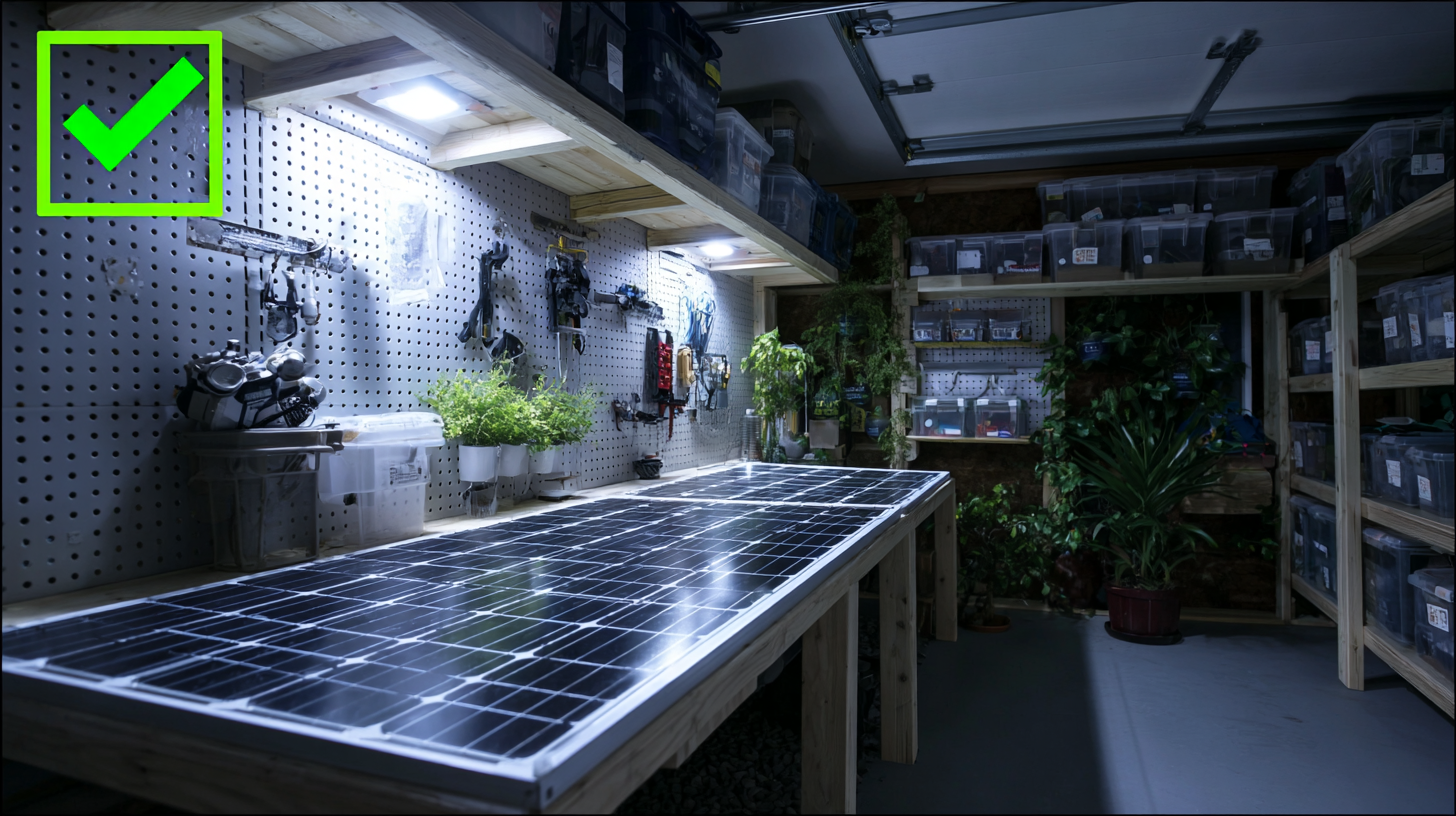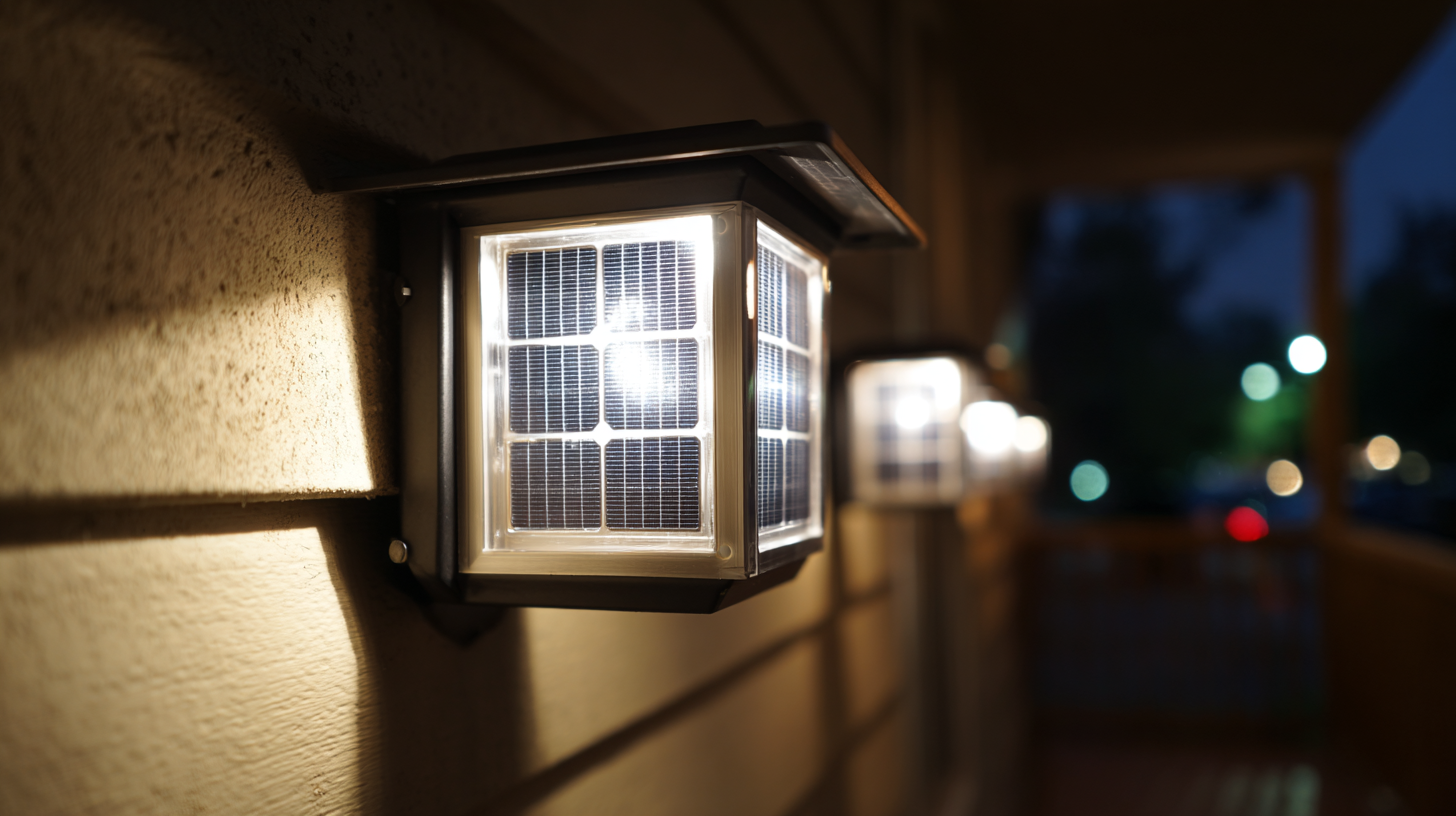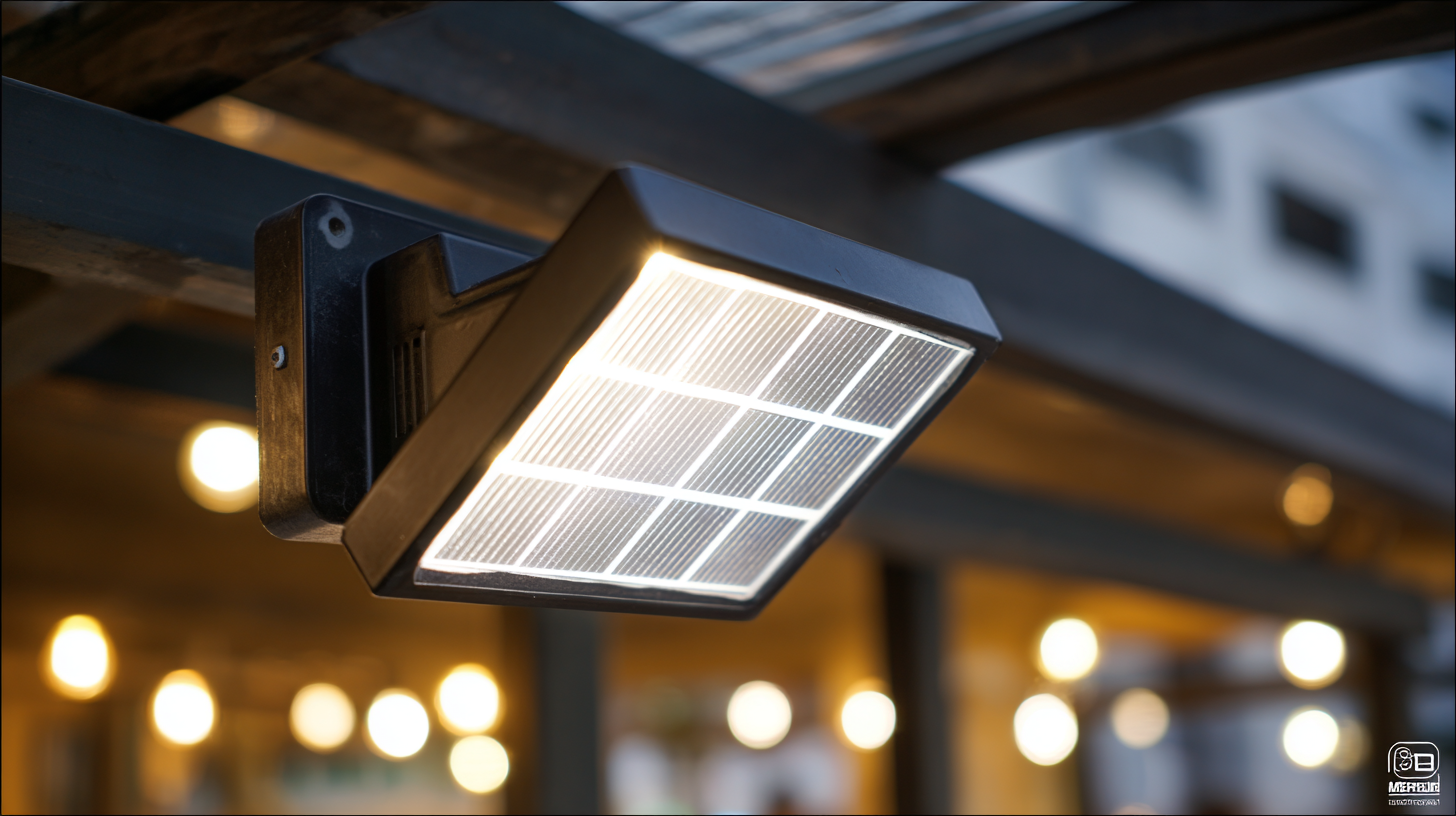5 Essential Tips for Choosing the Best Solar Panel Lights Indoor
In recent years, the adoption of sustainable energy solutions has surged, and one such innovative option gaining traction is Solar Panel Lights Indoor. According to a report by the International Energy Agency, the global solar lighting market is projected to grow by an impressive 20% annually, driven by increasing demand for eco-friendly alternatives. As individuals and businesses seek to reduce their carbon footprint while enhancing indoor spaces, choosing the right solar panel lights becomes crucial. Not only do these lights offer energy savings and lower utility bills, but they also contribute to a greener planet. Whether you're looking to illuminate your home office or brighten up a creative studio, selecting the best solar panel lights requires careful consideration of several factors. In this blog, we present five essential tips to guide you in making an informed choice that aligns with both your aesthetic and functional needs.

Factors to Consider When Evaluating Solar Panel Light Efficiency Ratings
When selecting the best solar panel lights for indoor use, understanding the efficiency ratings is crucial. Solar panel lights harness energy from the sun, and their performance is often quantified by their efficiency ratings. According to a report by the National Renewable Energy Laboratory (NREL), most solar panels have an efficiency range from 15% to 22%. Choosing a light with a higher efficiency rating ensures that you will receive more energy output, ultimately leading to greater illumination and longer usage times at night.
Tip 1: Look for lights that incorporate monocrystalline solar panels, as these typically offer the highest efficiency ratings. A study from the Solar Energy Industries Association (SEIA) indicates that monocrystalline panels can achieve efficiencies of up to 22%, making them ideal for limited indoor sunlight scenarios.
Tip 2: Consider the battery capacity, as it directly affects how well the light operates during periods of low sunlight. A well-rated solar panel light should have a battery that can store enough energy to last through the night, compensating for cloudy days. Reports suggest that lights with lithium-ion batteries tend to perform better and have longer lifespans compared to lead-acid alternatives.
By focusing on these key efficiency factors, you'll be better equipped to choose solar panel lights that meet your indoor lighting needs effectively.
5 Essential Tips for Choosing the Best Solar Panel Lights Indoor - Factors to Consider When Evaluating Solar Panel Light Efficiency Ratings
| Feature | Importance | Description | Rating Scale (1-5) |
|---|---|---|---|
| Lumens Output | High | Measures the brightness of the lights. | 4 |
| Battery Capacity | High | Measures how long the lights will operate on a full charge. | 5 |
| Solar Panel Efficiency | Medium | The effectiveness of the solar panel in converting sunlight to energy. | 3 |
| Durability | Medium | The ability of the light to withstand regular use and environmental factors. | 4 |
| Design and Aesthetics | Low | Visual appeal and how well it fits in your interior. | 4 |
Understanding Different Types of Solar Cells for Indoor Use and Their Performance
When selecting solar panel lights for indoor use, understanding the different types of solar cells available is paramount for ensuring optimal performance and efficiency. Recent advancements highlight the potential of organic solar cells, particularly with the introduction of tandem structures that have achieved a power conversion efficiency (PCE) of 16.94%. These innovative designs allow for transparency while maximizing energy capture, making them suitable for indoor environments where aesthetics and light penetration are crucial.
Moreover, the performance of solar panels can vary significantly based on climatic conditions, as illustrated by the rapid growth of solar capacity in countries with diverse weather patterns. For instance, China has surpassed Germany, becoming the world's leading solar power user, reflecting its adaptability to varying climates. A new outdoor testing ground in Germany, established by researchers at a solar technology institute, is set to enhance the evaluation of photovoltaic components by comparing lab results with real-world testing. This kind of thorough assessment is critical in determining which solar cell technology will yield the best results for indoor applications, ensuring that users can select the most effective and efficient solar lighting solutions for their needs.
Industry Standards for Solar Panel Lights: What You Need to Know
When selecting solar panel lights for indoor use, understanding industry standards is crucial to ensure quality and efficiency. One important standard to consider is the lumen output, which measures the brightness of the lights. For indoor environments, you should aim for solar lights that produce at least 100 lumens per light to adequately illuminate spaces. Additionally, check for the energy conversion efficiency of the solar panels. High-quality solar panels typically convert 15-22% of solar energy into usable electricity, ensuring that your lights perform well even on cloudy days or in low-light conditions.
Another vital aspect of industry standards is the durability and material quality of the lights. Look for solar panel lights made from weather-resistant materials, even for indoor use, as this can extend their lifespan. Furthermore, ensure that the lights comply with safety regulations, such as those set by Underwriters Laboratories (UL), to avoid any hazards. By prioritizing these standards, you can confidently choose solar panel lights that not only serve their purpose effectively but also provide safety and longevity for your indoor environment.
Comparison of Indoor Solar Panel Lights: Key Features
Maximizing Battery Life: Key Specifications for Indoor Solar Panel Lights
 When selecting indoor solar panel lights, maximizing battery life is crucial for sustained performance and efficiency. Recent advancements in energy storage systems (ESS) underscore the importance of understanding power and capacity ratings. Effective solar battery storage systems can optimize energy delivery, ensuring that your lights remain illuminated even during periods of limited sunlight. For instance, current technologies allow for greater energy harvesting, providing efficiency gains that can lead to up to 30% more usable energy than older models.
When selecting indoor solar panel lights, maximizing battery life is crucial for sustained performance and efficiency. Recent advancements in energy storage systems (ESS) underscore the importance of understanding power and capacity ratings. Effective solar battery storage systems can optimize energy delivery, ensuring that your lights remain illuminated even during periods of limited sunlight. For instance, current technologies allow for greater energy harvesting, providing efficiency gains that can lead to up to 30% more usable energy than older models.
In addition to battery capacity, the design of solar panels themselves plays a significant role in enhancing performance. The latest reviews on solar energy harvesting highlight that high-quality LED lights paired with innovative solar technologies can significantly cut electricity costs and reduce maintenance needs. Some indoor solar lights now integrate advanced features such as automatic brightness adjustment based on ambient light conditions and smart charging technologies that extend battery life by up to 50%. Choosing lights that leverage these advancements can make a noticeable difference in both energy efficiency and the longevity of your lighting solutions.
Installation Tips for Optimal Performance of Indoor Solar Lighting Solutions
When it comes to installing indoor solar panel lights, careful consideration of placement can greatly enhance their performance. One essential tip is to choose areas that receive ample sunlight during the day. Positioning your solar lights near windows or in well-lit rooms ensures that the batteries can charge efficiently. This allows the lights to shine brightly at night, providing optimal illumination in your indoor spaces.
Another crucial tip is to ensure that the installations are secure and stable. Using appropriate mounting hardware can prevent the lights from shifting over time, which could obstruct their solar panels. Additionally, keeping the solar panels clean from dust and debris will maximize their energy absorption. Regular maintenance, such as wiping the panels with a damp cloth, can significantly prolong the lifespan of your indoor solar lights.
Lastly, consider using smart indoor solar lights that come with adjustable settings. This allows you to control brightness levels based on your needs, enhancing both mood and energy efficiency. Utilizing features like motion sensors can also reduce unnecessary energy usage, providing a smart and sustainable lighting solution that adapts to your lifestyle.
